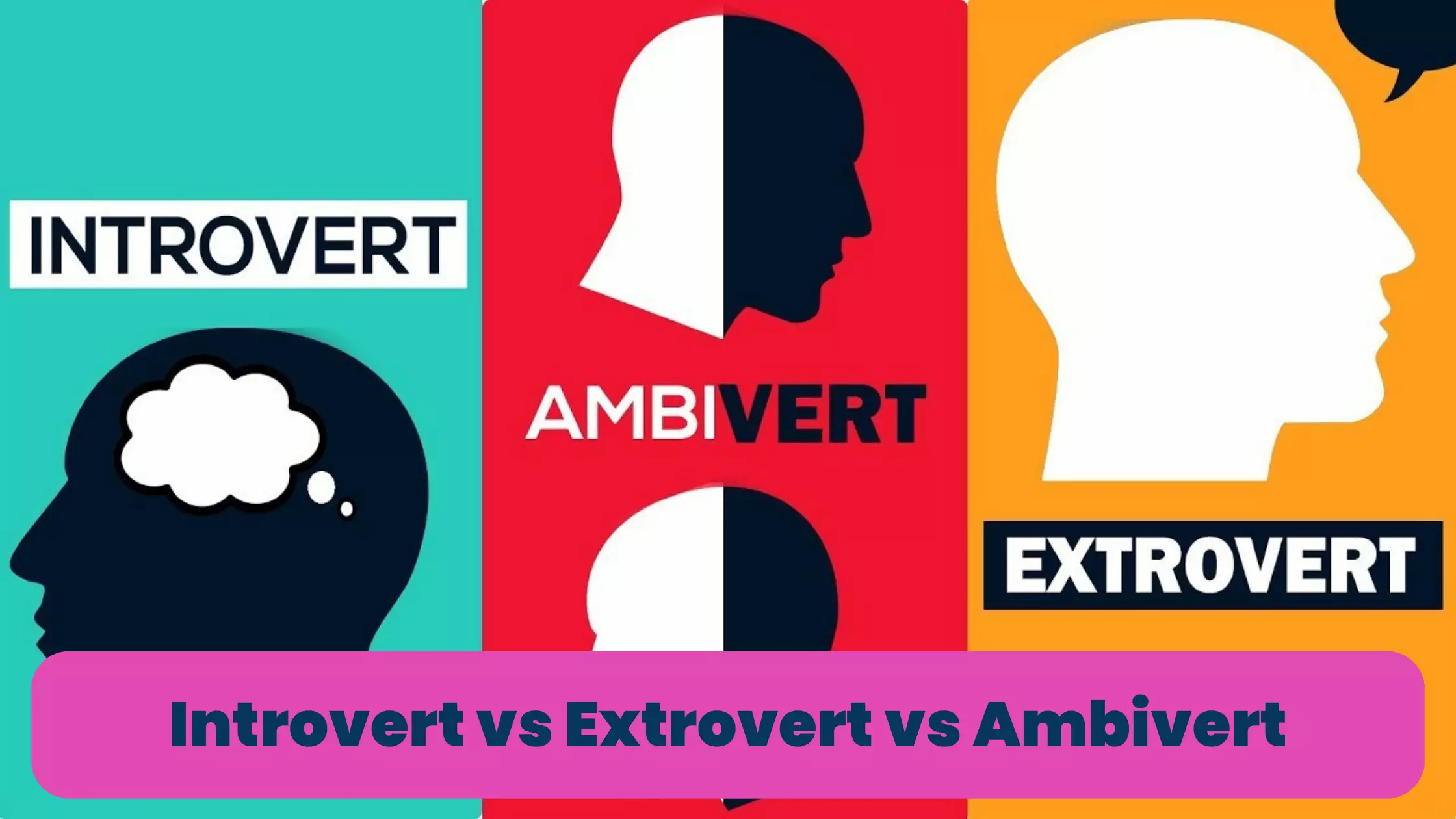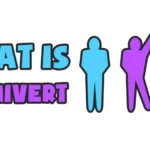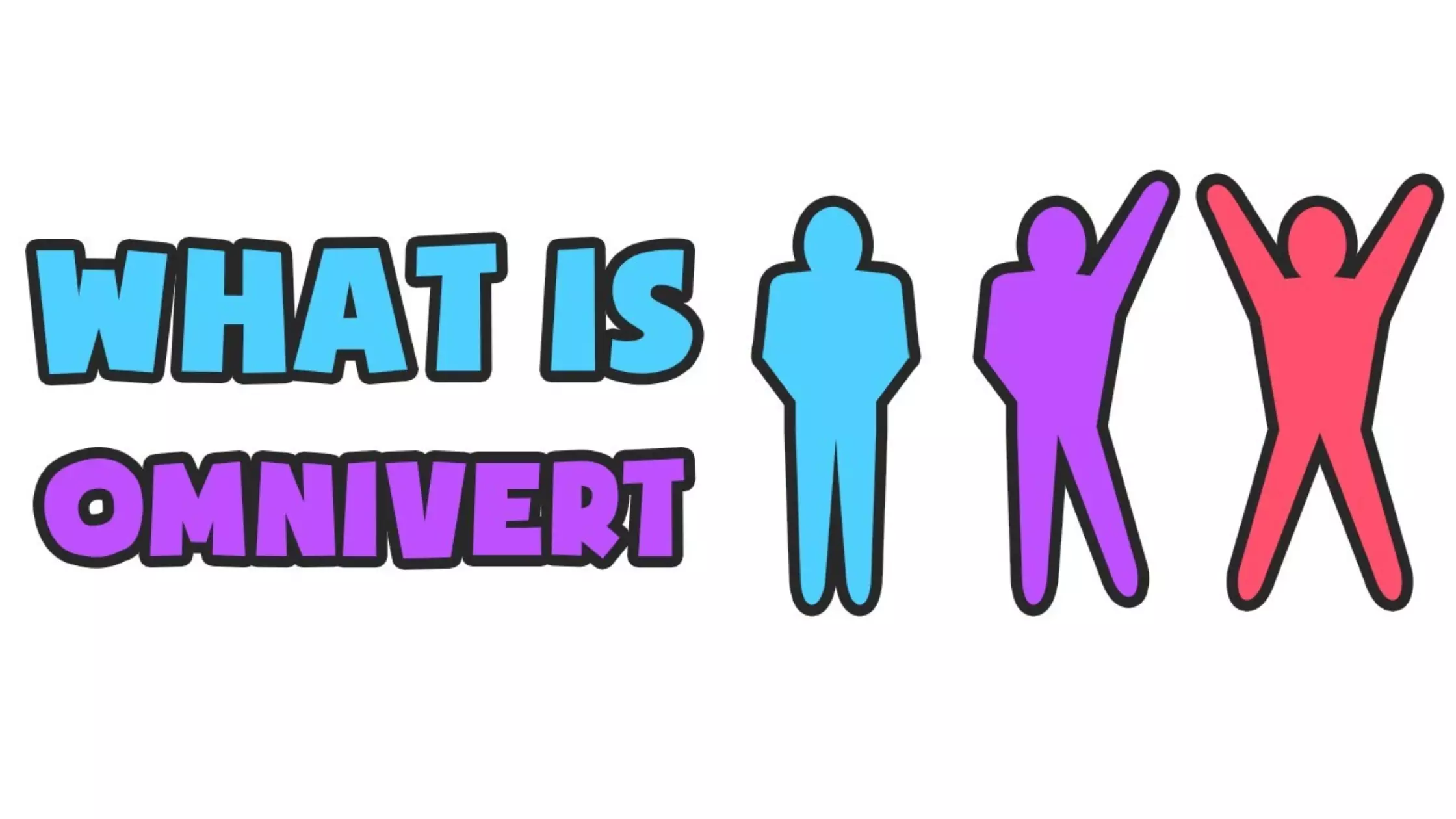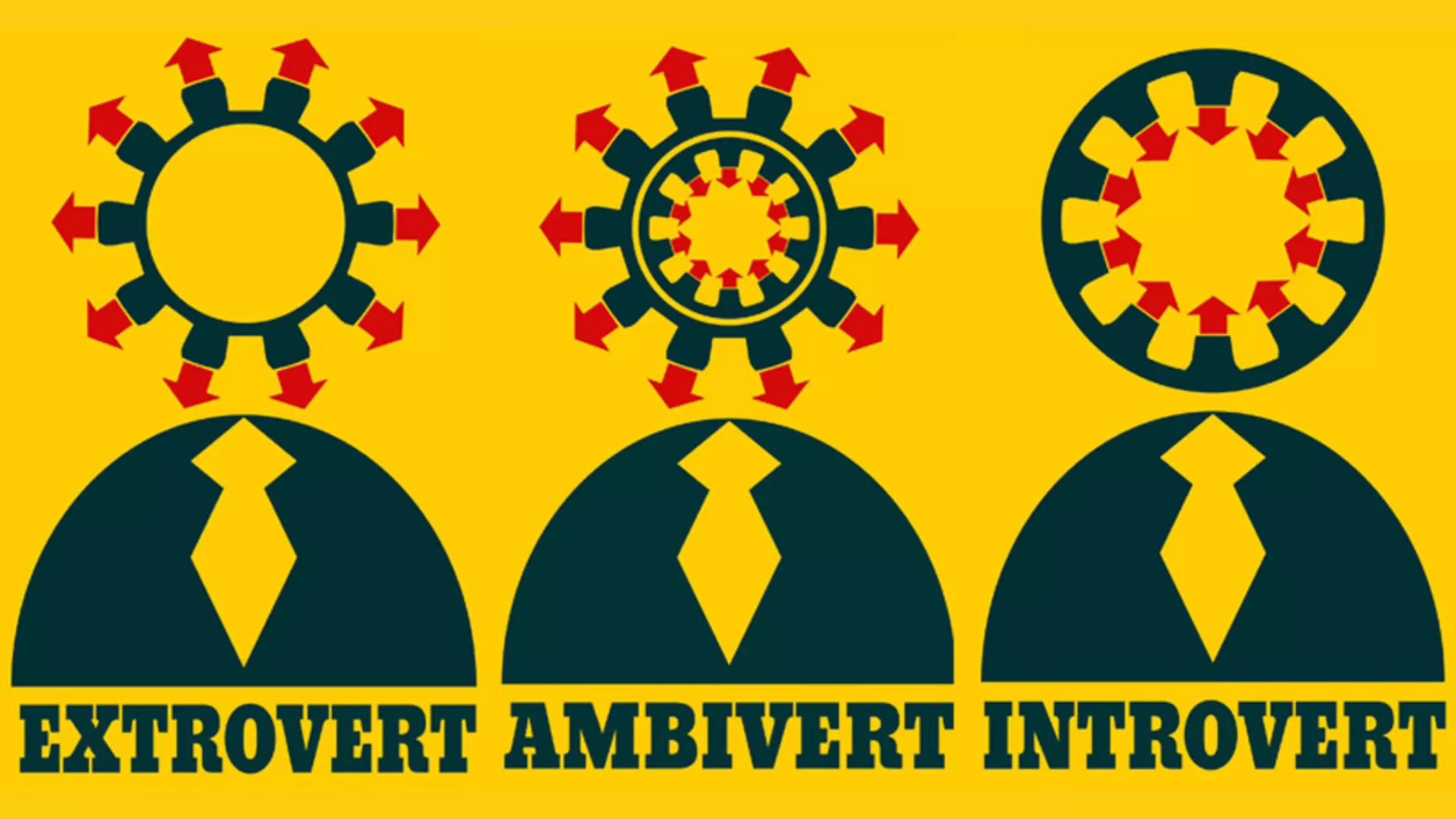In a world that thrives on social interactions, it is essential to understand the different personality types that individuals possess. Three common personality types are introverts, extroverts, and ambiverts. Each type has unique characteristics and preferences that shape how they navigate social situations, work environments, and relationships. This article aims to delve into the distinctions between introversion, extroversion, and ambiversion, shedding light on their traits, strengths, and misconceptions.
Understanding Introversion, Extroversion, and Ambiversion
Before diving into the specifics, it’s crucial to comprehend the fundamental differences between introversion, extroversion, and ambiversion. These terms were popularized by psychologist Carl Jung and later expanded upon by other personality theorists. Introverts are individuals who tend to be more internally focused, finding solitude energizing and recharging. Extroverts, on the other hand, thrive on external stimuli and gain energy from social interactions. Ambiverts represent a balance between the two extremes, displaying traits of both introversion and extroversion.
Characteristics of Introverts
Introverts possess distinct characteristics that distinguish them from other personality types. They often prefer solitude, introspection, and deep thinking. Introverts tend to have a small circle of close friends and value meaningful connections over superficial interactions. They are excellent listeners, observant, and thoughtful. While they may find socializing draining, introverts excel in tasks requiring concentration, creativity, and attention to detail.
Characteristics of Extroverts
Extroverts are known for their outgoing and sociable nature. They thrive in social settings, enjoying the energy and stimulation that come from interacting with others. Extroverts are natural communicators, often being expressive and comfortable in large groups. They are energized by external stimuli and tend to think aloud. Extroverts are generally spontaneous, risk-takers, and enjoy being in the spotlight.
Characteristics of Ambiverts
Ambiverts represent a balance between introversion and extroversion, displaying characteristics of both personality types. They possess the ability to adapt their behavior based on the situation at hand. Ambiverts are comfortable in social settings but also appreciate and require alone time. They possess a flexible nature and can switch between extroverted and introverted behaviors when necessary. This adaptability allows ambiverts to navigate various social situations with ease.
Introverts and Extroverts in Social Situations
Social situations can be interpreted differently by introverts and extroverts. Introverts may find large gatherings overwhelming, preferring smaller, intimate settings. They may take longer to warm up to new people but often establish deep connections with a select few. Extroverts, on the other hand, thrive in social settings and find energy in the company of others. They enjoy meeting new people, engaging in lively conversations, and being the center of attention.
Communication Styles of Introverts, Extroverts, and Ambiverts
The communication styles of introverts, extroverts, and ambiverts vary significantly. Introverts are thoughtful listeners and tend to choose their words carefully. They may prefer written communication over verbal exchanges. Extroverts, on the contrary, are natural talkers and enjoy engaging in animated conversations. They often think out loud and are comfortable expressing their thoughts openly. Ambiverts possess a versatile communication style, adapting to the needs of the situation. They can be equally effective in one-on-one interactions and group discussions.
Introverts, Extroverts, and Ambiverts in the Workplace
Understanding personality types is crucial in the workplace. Introverts thrive in environments that allow for focused work and independent thinking. They excel in roles that require deep analysis, creativity, and attention to detail. Extroverts, on the other hand, thrive in collaborative settings and enjoy brainstorming sessions and team activities. They are often skilled at networking and building relationships. Ambiverts possess a unique advantage as they can adapt their approach to fit various work scenarios, making them versatile and effective in different roles.
Introverts, Extroverts, and Ambiverts in Relationships
In relationships, understanding the dynamics between introverts, extroverts, and ambiverts can foster better communication and harmony. Introverts may require alone time to recharge, which should be respected by their partners. They thrive in relationships that provide space for introspection and deep connections. Extroverts, on the other hand, appreciate socializing and external activities, and their partners should be supportive of their need for stimulation. Ambiverts adapt their behavior based on their partner’s preferences, striking a balance between alone time and shared experiences.
Misconceptions and Stereotypes
It is important to dispel misconceptions and stereotypes associated with introversion, extroversion, and ambiversion. Introverts are often mistaken for being shy or anti-social, while extroverts may be labeled as attention-seekers. These stereotypes fail to capture the depth and complexity of each personality type. Ambiverts are sometimes overlooked or misunderstood due to their ability to switch between introverted and extroverted behaviors. Recognizing the nuances of these personality types promotes a more inclusive and accepting society.
Harnessing the Strengths of Each Personality Type
Every personality type brings unique strengths to the table. Introverts excel in tasks requiring focus, creativity, and attention to detail. They possess deep insights and are often highly empathetic. Extroverts thrive in dynamic environments and are excellent communicators and motivators. Their energy and enthusiasm can inspire others. Ambiverts combine the strengths of both introverts and extroverts, making them adaptable and effective in various situations. Harnessing the strengths of each personality type leads to well-rounded teams and personal growth.
Balancing Your Personality Traits
Regardless of your personality type, balancing your traits is essential for personal and professional development. Introverts can benefit from pushing themselves outside their comfort zones occasionally, engaging in social activities that align with their interests. Extroverts can practice active listening and introspection to deepen their self-awareness. Ambiverts should embrace their adaptability while ensuring they allocate enough time for both socializing and solitude. Striking a balance allows individuals to harness the strengths of their personality type while challenging themselves to grow.
Developing Social Skills as an Introvert, Extrovert, or Ambivert
Developing social skills is important for individuals of all personality types. Introverts can enhance their social skills by practicing active listening, participating in small group discussions, and gradually expanding their comfort zones. Extroverts can benefit from being mindful of others’ perspectives, practicing patience, and giving space for quieter voices. Ambiverts can focus on adapting their communication styles to connect with a diverse range of individuals. Developing social skills enhances personal and professional relationships.
Understanding Yourself and Others
Understanding different personality types allows for better self-awareness and empathy toward others. By recognizing your own tendencies as an introvert, extrovert, or ambivert, you can better navigate social interactions and adapt your communication style accordingly. Similarly, recognizing the traits of others promotes understanding and reduces conflicts. Building strong relationships and fostering effective collaboration becomes easier when you appreciate the diverse perspectives and preferences of those around you.
Conclusion
In conclusion, the distinctions between introversion, extroversion, and ambiversion have a significant impact on how individuals navigate various aspects of life. Recognizing and appreciating the strengths and characteristics of each personality type promotes a more inclusive and harmonious society. By understanding yourself and others, developing social skills, and balancing your traits, you can harness the full potential of your personality type and foster meaningful connections with those around you.
FAQs
Can a person be both an introvert and an extrovert?
While it is rare, there are individuals who display characteristics of both introversion and extroversion, known as ambiverts. Ambiverts can adapt their behavior based on the situation and may lean towards introversion or extroversion depending on the circumstances.
Are introverts shy?
Introversion should not be equated with shyness. While some introverts may be shy, many introverts are simply more internally focused and prefer solitude or smaller social interactions.
Can extroverts enjoy alone time?
While extroverts gain energy from social interactions, they can still appreciate and benefit from occasional alone time. However, extroverts generally find solitude less energizing compared to introverts.
Are ambiverts indecisive?
Ambiverts are not necessarily indecisive. Their ability to adapt their behavior and preferences based on the situation does not indicate indecisiveness but rather a flexibility and versatility.
Can introverts be successful in leadership roles?
Absolutely! Introverts possess qualities that are valuable in leadership, such as deep listening skills, thoughtful decision-making, and the ability to create a focused and productive work environment. Introverted leaders can be highly successful by leveraging their unique strengths.







